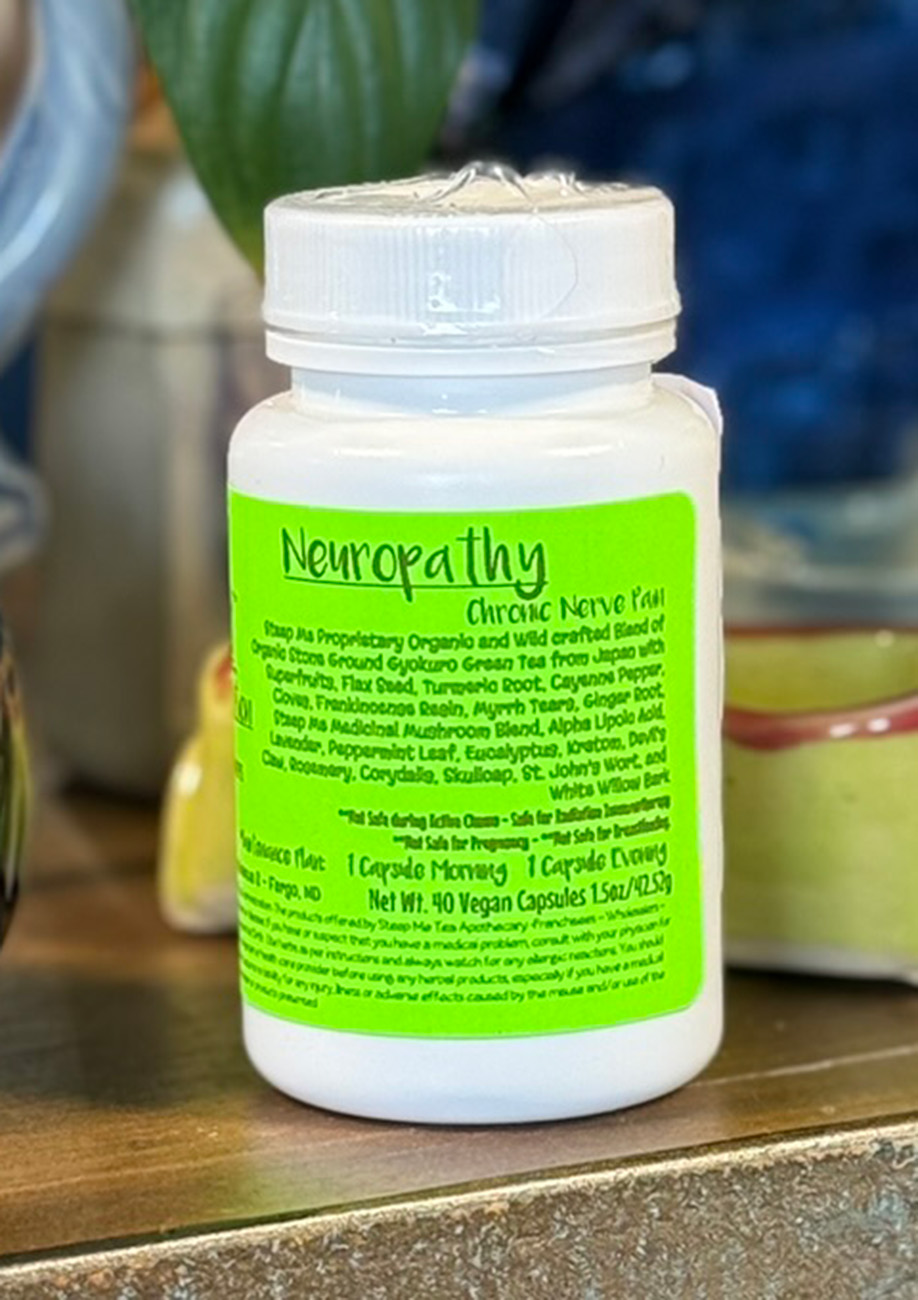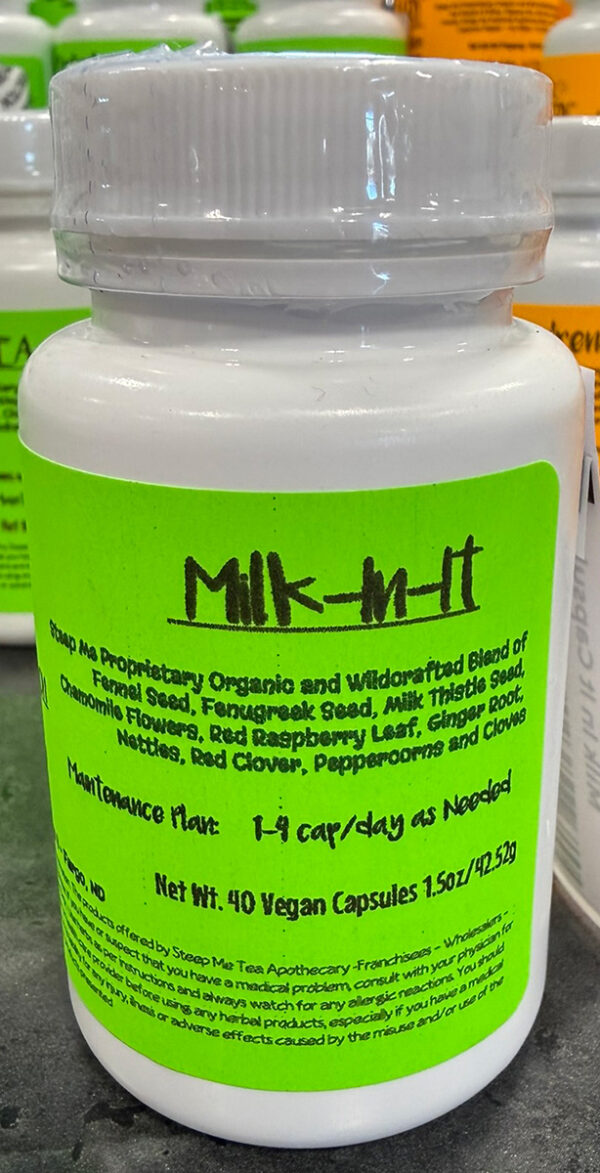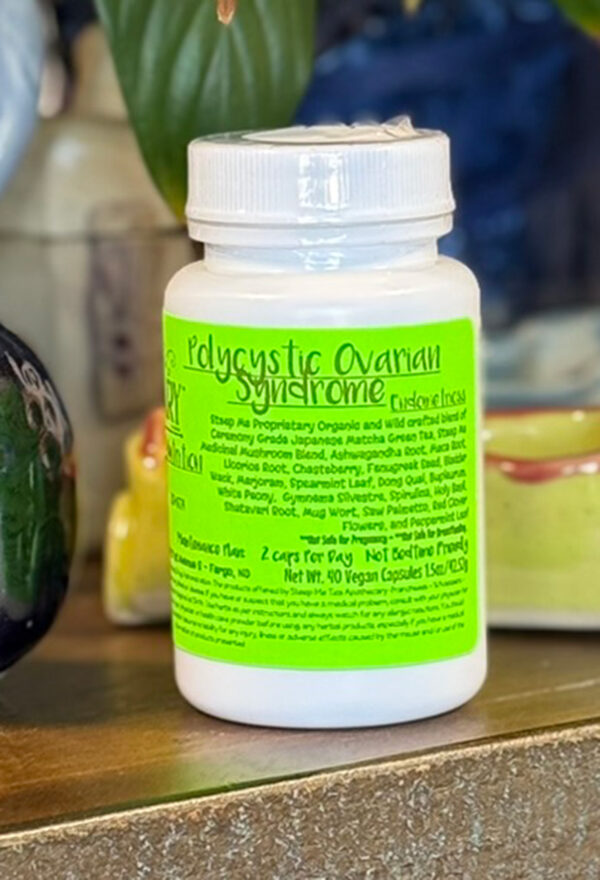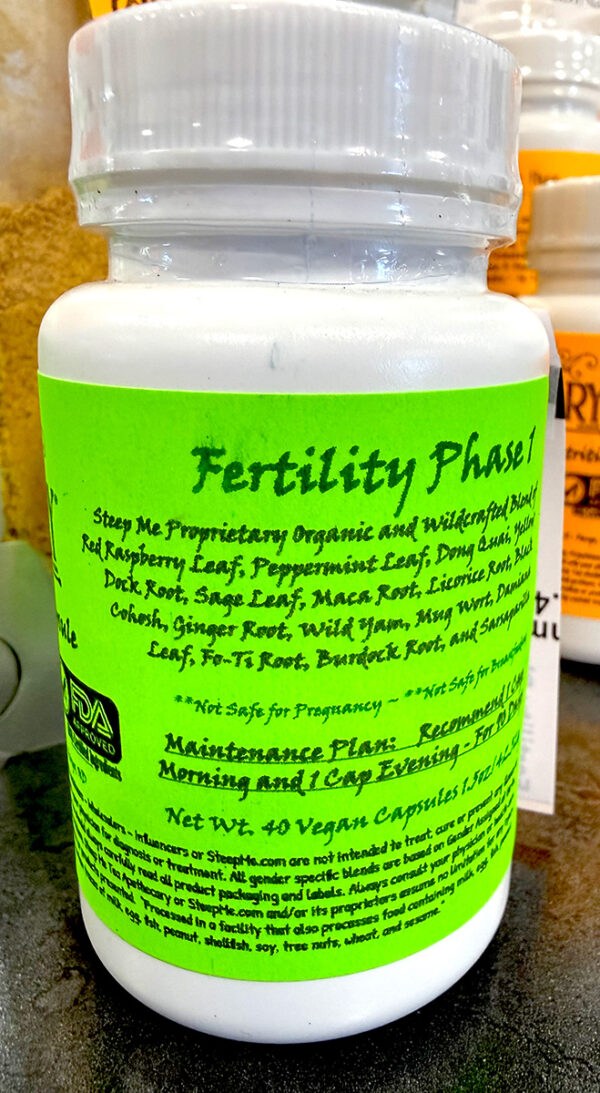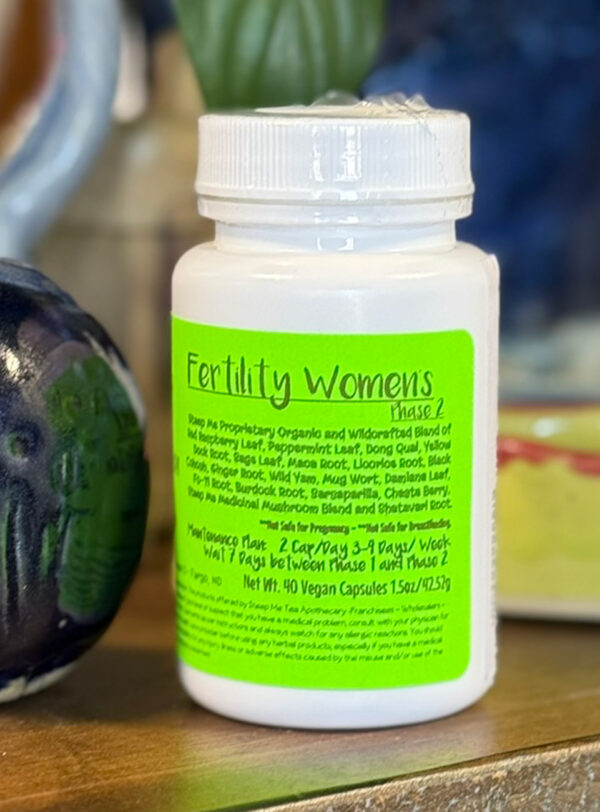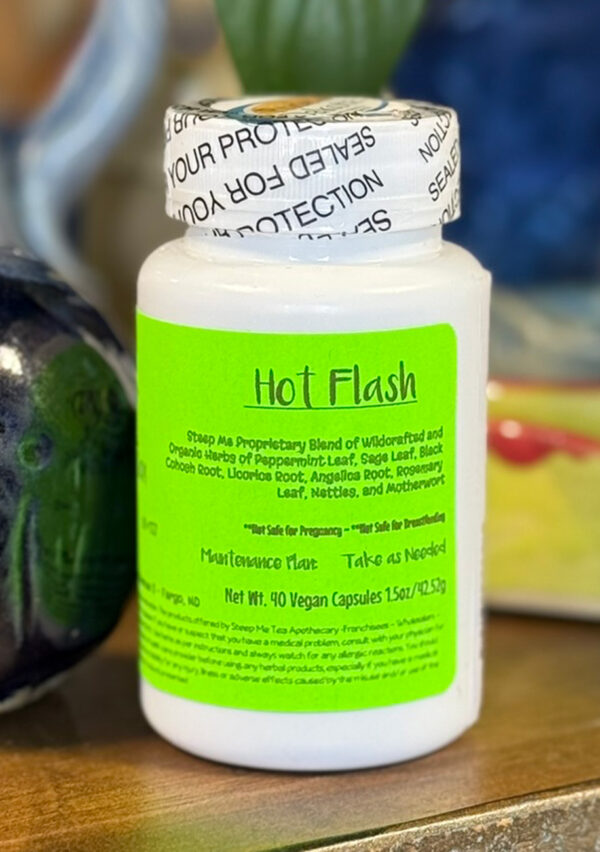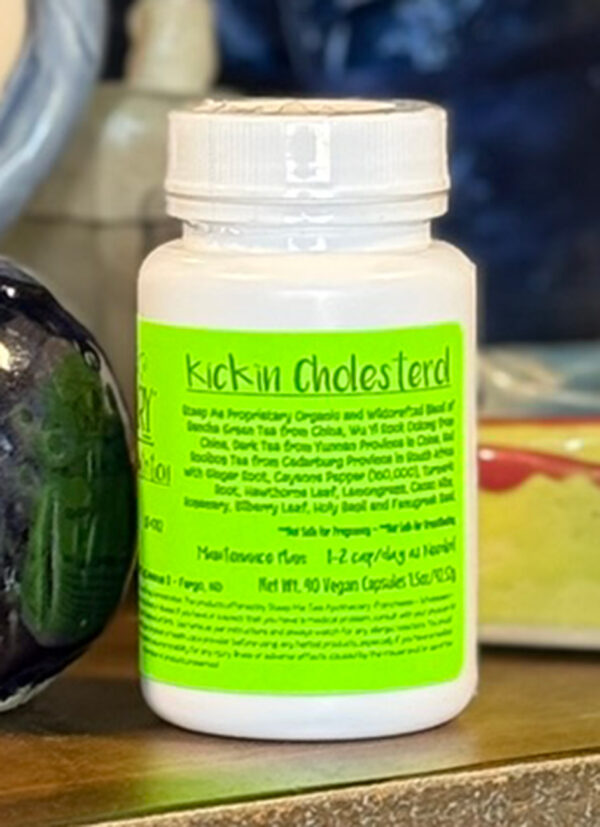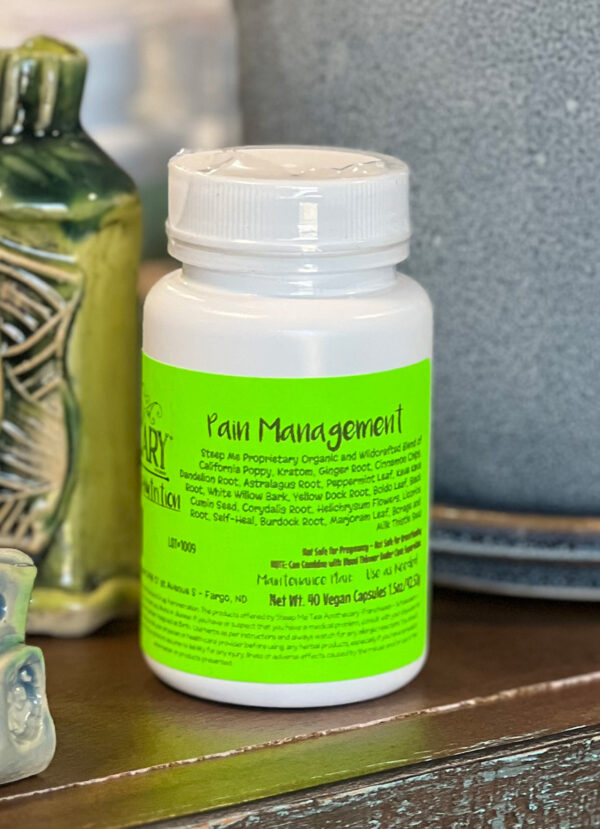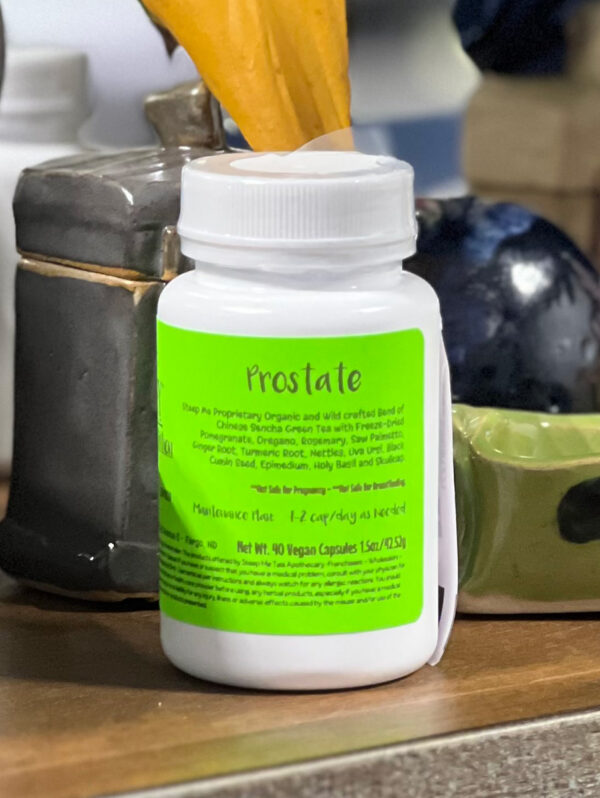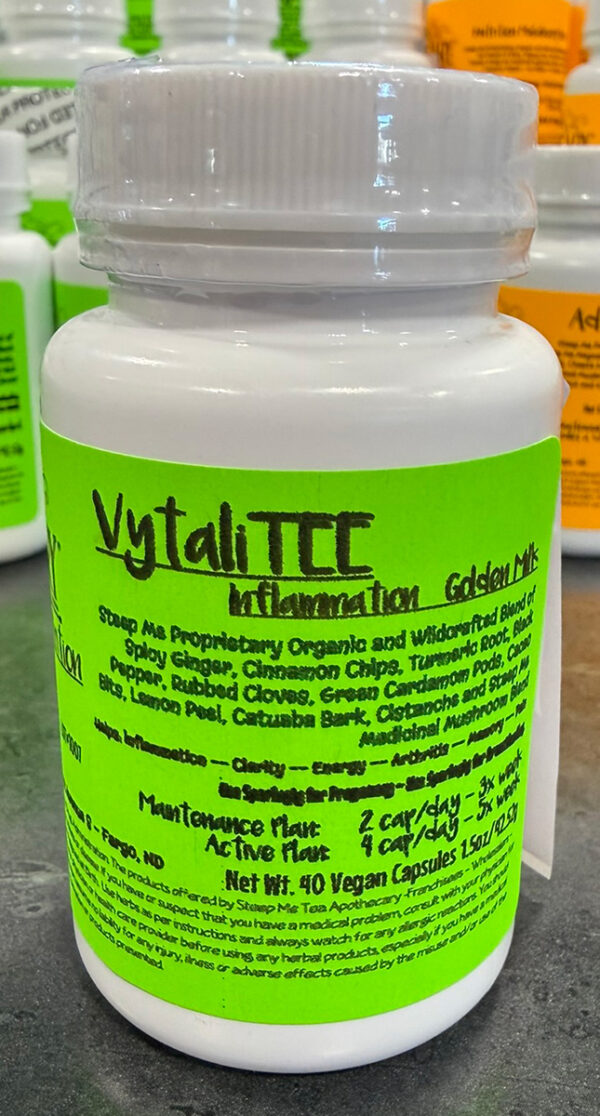With over 400 different kinds of loose tea that will exceed all tea lover’s expectations. You’re sure to find something you will love! All handcrafted by us in North Dakota.
Description
Blender’s Notes Neuropathy ~ Chronic Nerve Pain:
Steep Me Self-Help Tea combinations are a wonderful way to get health benefits outside of the standard tea leaf. In this combination of herbs, we really wanted to offer a blend to help manage neuropathy and give the body extra help to start helping with peripheral nerve pain and healing. We combined the herbs to start teaching the body to start to nourish the entire nerve, to begin the process of giving it what it needs to get onto the road to being healthy and working properly. Over time…a healthy nerve then will become pain free or at least a pain managed nerve, giving back normalcy and functionality to a daily life. This combination of herbs is safe to use during active chemo cancer treatments. What is peripheral neuropathy? Peripheral neuropathy is an umbrella term for nerve diseases that affect a specific subdivision of your nervous system. Many different conditions can cause peripheral neuropathy, which means a wide range of symptoms is also possible. Peripheral neuropathy can also affect different body parts, depending on how and why it happens. Your nervous system has two parts, the central nervous system, and the peripheral nervous system. Your brain and spinal cord are the two components that make up your central nervous system. Your peripheral nervous system consists of all the other nerves in your body. It also includes nerves that travel from your spinal cord and brain to supply your face and the rest of your body. Peripheral neuropathy can refer to any condition affecting your peripheral nerves. Healthcare providers often use the terms “neuropathy” and “polyneuropathy” (meaning “disease of many nerves”) interchangeably with “peripheral neuropathy.” Peripheral nerves are farthest from the central nervous system, and they often show the earliest and most severe effects of these conditions Peripheral neuropathy can affect anyone, regardless of age, sex, race or ethnicity, personal circumstances, medical history, etc. However, some people are at greater risk for specific types of peripheral neuropathy (see below Causes and Symptoms for more about this). Peripheral neuropathy is also quite common with some age-related diseases. That means the risk of developing peripheral neuropathy increases as you get older.
What are the symptoms of peripheral neuropathy? There are many different symptoms of peripheral neuropathy. This condition can affect a single nerve, a connected group of related nerves, or many nerves in multiple places throughout your body. The symptoms also depend on the type of nerve signals affected, and multiple signal types may be involved. The symptom types (with more about them below) are Motor. Sensory and pain. Autonomic.
Motor symptoms Your peripheral nervous system carries motor signals, which are commands sent from your brain to your muscles. These signals are what make it possible for you to move around. Your muscles need nerve connections to the brain to stay healthy and work properly. Motor symptoms include Muscle weakness and paralysis. Nerve deterioration from peripheral neuropathy weakens the connected muscles. That can cause paralysis, which may cause difficulty moving the toes, foot drop and hand weakness. Weaknesses can also affect muscles in the thighs, arms, and other places. Muscle atrophy. Loss of nerve connection can cause muscles to shrink in size, as well as weaken. This especially happens in the feet, lower legs, and hands with peripheral neuropathy. Sometimes there are deformities of the feet and hands because of muscle loss. Uncontrolled muscle movements. Sometimes, nerves that lose their connection to the brain because of peripheral neuropathy become hyperactive on their own, causing cramps.
Sensory symptoms Your peripheral nerves convert information about the outside world into nerve signals. Those signals then travel to your brain, which processes those signals into what you can sense of the world around you. Peripheral neuropathy can disrupt what your senses pick up from the outside world or the ability of those senses to communicate with your brain. The sensory symptoms of peripheral neuropathy include Tingling. This happens when there is a problem with nerves that carry signals to your brain. This is like radio static you hear when you are too far from the broadcasting station. Numbness. This happens when nerves cannot send or relay sensory signals, causing the loss of specific types of sensations. An example of this would be picking up a cold pop can but not feeling the smoothness or coldness of the can or not being able to feel the texture of carpet or the temperature of the floor through your feet. Imbalance and clumsiness. Nerves also carry sensations that your brain uses to keep track of the location of your hands and feet. You are not consciously aware of these sensations, but they are critical for balance and coordination. Without these sensations, you can experience a loss of balance, especially in the dark, and clumsiness with your hands. Pain. Nerve damage from peripheral neuropathy can cause malfunctions in how and when nerves send pain signals, making pain signals more intense (hyperalgesia) or happen too easily (allodynia). It can even cause nerves to generate pain signals spontaneously. This is known as “neuropathic” pain, and it is the most noticeable and disruptive symptom of peripheral neuropathy.
Autonomic symptoms Your body has several autonomic processes. These are the automatic functions of your body that happen without your thinking or even being aware of them. They include things like sweating, digestion, blood pressure control, etc. Autonomic nerve fibers carry autonomic signals. Disruptions in autonomic signals mean your body’s automatic processes cannot work correctly. Some may work off and on, while others may not work at all. Autonomic symptoms of peripheral neuropathy can include Blood pressure changes. Your body automatically manages blood pressure, but damage to your peripheral nerves can disrupt this. That can cause sudden drops in blood pressure or increases in heart rate, especially when you stand up. Sweating too much or not enough. Your body automatically manages its internal temperature, using sweat to shed heat. Peripheral nerve damage can cause you to sweat too much or not enough. That can lead to dryness and scaling on your feet, or excessive sweating after eating. Bowel and bladder problems. Autonomic signals control your bowel and bladder without you having to think about them. Nerve fiber disruption can affect bowel movements (constipation or diarrhea), and can occasionally affect bladder control, too. Sexual dysfunction. Your autonomic nervous system controls sexual arousal. That is why autonomic problems can cause sexual dysfunction. Other symptoms. Autonomic changes from peripheral neuropathy can also cause skin color changes, swelling, changes in the pupils of the eyes and blurry vision. Peripheral Neuropathy: What It Is, Symptoms & Treatment (clevelandclinic.org)
We based this complex blend on Japanese Ceremony Grade Matcha. Matcha is a finely ground powder made from specially grown and processed green tea leaves, offers several health benefits. Matcha is rich in antioxidants, particularly catechins like EGCG (epigallocatechin gallate), which can help reduce oxidative stress and inflammation. This is beneficial because oxidative stress and inflammation can contribute to nerve damage. The L-theanine in matcha promotes relaxation and can enhance brain function. It may also help protect neurons from damage, potentially aiding in the management of neuropathy symptoms. Matcha can improve blood flow, which is crucial for nerve health. Better circulation can help deliver essential nutrients and oxygen to nerve cells. Chronic inflammation is a common issue in neuropathy. The anti-inflammatory properties of matcha can help reduce this inflammation, potentially alleviating some symptoms. With this Japanese Matcha, we added in superfruits. Superfruits have high antioxidant content, which helps reduce inflammation and nerve damage and pair wonderfully with the Matcha. Along with the green tea we added Flax seed. Flax seeds are beneficial for managing peripheral neuropathy. They are rich in omega-3 fatty acids, which have anti-inflammatory properties that may help reduce nerve pain and inflammation. Additionally, consuming flaxseed powder with water on an empty stomach every morning is suggested to aid in the absorption of fats and sugars, which can be beneficial for nerve health. Next, we added Turmeric. Turmeric and its active compound curcumin have shown promise in managing neuropathy symptoms. Curcumin has analgesic properties, which can help reduce the pain associated with neuropathy. It works by suppressing the COX-2 gene, which participates in pain signaling. Curcumin’s anti-inflammatory properties can help reduce this inflammation, potentially alleviating symptoms like tingling, numbness, and pain. Curcumin is a strong antioxidant, which helps protect nerve cells from damage caused by oxidative stress. Curcumin can help repair nerve damage and improve nerve function. Along with the Turmeric, we added Cayenne. Cayenne contains the active compound capsaicin, can be beneficial for managing neuropathy pain. Capsaicin works by desensitizing pain receptors and reducing the intensity of pain signals sent to the brain. Cloves can be quite beneficial for neuropathy due to their potent anti-inflammatory and analgesic properties. Clove contains eugenol, which is known for its pain-relieving effects. Frankincense and Myrrh were added because they work great together in helping Frankincense is believed to have anti-inflammatory properties, which can help reduce the pain and inflammation and can give relief to the burning, tingling and numbness. Neuroinflammation is a dominant factor in neuropathic pain (NP). Ginger is a promising bioactive compound in NP management due to its anti-inflammatory property. Emerging evidence suggests that gut microbiome and gut-derived metabolites play a key role in NP and that is why we added this to our blend.
Steep Me Medicinal Mushrooms were added because their active compounds, such as the nerve growth factor have shown promise in managing chronic pain, including complex conditions like chronic neuropathic pain and phantom limb pain. Mycelium, mushrooms compound in medicinal mushrooms, has been proven to help with neuropathic discomfort and can be considered an alternative to traditional pain management methods. Medicinal Mushrooms have neuroprotective properties that contain compounds that may stimulate nerve growth factor (NGF), which is crucial for the growth, maintenance, and survival of neurons and can be particularly beneficial for repairing nerve damage and reduce symptoms like pain and numbness. Next, we added Alpha Lipoic Acid because it is an antioxidant that has shown promise in helping with neuropathy, particularly diabetic neuropathy. Here are some key points: ALA helps protect cells from oxidative stress, which is a significant factor in nerve damage. ALA can reduce symptoms like pain, tingling, and prickling in the feet and legs. It may improve nerve conduction and reduce neuropathic pain. ALA has been found to be particularly beneficial for people with diabetic neuropathy, potentially easing symptoms within a few weeks. Lavender can help alleviate symptoms of neuropathy and can help reduce nerve pain and provide anti-anxiety benefits. Its analgesic properties may help numb affected areas and ease the discomfort associated with neuropathy. Peppermint was also included because it contains menthol which has natural analgesic and anti-inflammatory properties, which can help numb the affected area and reduce pain and discomfort. This can be especially helpful for those experiencing peripheral neuropathy, where pain can be intense and persistent. Eucalyptus can be quite beneficial for neuropathy due to its anti-inflammatory and analgesic properties. It helps reduce pain and inflammation, which are common symptoms of neuropathy. Additionally, eucalyptus can improve blood circulation and stimulate nerves, potentially alleviating numbness, and chronic pain.
Devils Claw Devil’s claw, scientifically known as Harpagophytum procumbens, is an herb traditionally used for its anti-inflammatory and pain-relieving properties. It has shown potential benefits for various conditions, including neuropathy and devil’s claw may help alleviate neuropathic pain and postoperative pain. Rosemary has anti-inflammatory and analgesic properties that make it a great herb for treating nerve pain. It can help to reduce inflammation and pain in the nerves and is known to improve cognitive function, which can benefit those suffering from neuropathic pain and it has antinociceptive, anti-inflammatory, anti-apoptotic and neuroprotective properties. Corydalis has been added for its pain-relieving properties. It may be effective in managing neuropathic pain. The active compounds in Corydalis, such as tetrahydropalmatine (THP) and dehydrocorybulbine (DHCB), interact with the central nervous system to modulate pain signals and provide relief. Skull Cap has been added for its potential benefits in managing neuropathy. This herb is rich in antioxidant flavonoids, which may help repair nerve damage. It also contains baicalin, a compound that affects GABA receptors, providing nerve-relaxant and antispasmodic properties. In the context of neuropathy, skullcap may help by: Calming the nervous system: Reducing the body’s inflammatory response. Promoting blood flow: Enhancing circulation to the brain and other areas. Supporting insulin production: Helping the pancreas regulate insulin, which can be beneficial for diabetic neuropathy. Next, we added St. John’s Wort. St. John’s also known as Hypericum perforatum, has been traditionally used for various nerve-related issues, including nerve damage and pain. St. John’s wort might help reduce nerve pain and inflammation and the herb contains compounds like hyperforin and hypericin, which are believed to have nerve restorative properties. Finally, we added White Willow. White Willow is derived from the bark of the white willow tree (Salix alba), containing a chemical called salicin, which is like aspirin. This makes it a natural pain reliever with anti-inflammatory properties.
NOTE: “This/these claim(s) has/have not been evaluated by the Food and Drug Administration. This product is not intended to diagnose, treat, cure or prevent any disease.”
Features Neuropathy ~ Chronic Nerve Pain:
- Ready to Go
- Lots of individual flavor based on the ingredients
- All Wildcrafted Herbs
- All Organic where Wildcrafted is not available
- Maintenance Plan: Use as Needed ~ 1 Capsule Morning ~ 1 Capsule Evening
- Caffeine: Low
Ingredients: Steep Me Proprietary Organic and Wild crafted Blend of Organic Stone Ground Gyokuro Green Tea from Japan with Superfruits, Flax Seed, Turmeric Root, Cayenne Pepper, Cloves, Frankincense Resin, Myrrh Tears, Ginger Root, Steep Me Medicinal Mushroom Blend, Alpha Lipoic Acid, Lavender, Peppermint Leaf, Eucalyptus, Devil’s Claw, Rosemary, Corydalis, Skullcap, St. John’s Wort, and White Willow Bark
Alternatively, try our Pain Management Phyto~Nutrition Tea OR Pain Management Phyto~Nutrition Capsules OR Anti-Inflammation Micro~Nutrition Capsules OR VytaliTEE Phyto~Nutrition Tea
Not Safe During Pregnancy
Not Safe During Breastfeeding
Meant to be used to Nourish the Nerves and Manage Pain
CANNOT Be used During Chemical Chemo – Check with your Oncologist
NOTE: This/these claim(s) has/have not been evaluated by the Food and Drug Administration. The products offered by Steep Me Tea Apothecary -Franchisees – Wholesalers – Influencers or SteepMe.com are not intended to treat, cure, or prevent any illness or disease. If you have or suspect that you have a medical problem, consult with your physician for diagnosis or treatment. Any gender specific blends are based on gender assigned at birth. Use herbs as per instructions and always watch for any allergic reactions. You should always carefully read all product packaging and labels. Always consult your physician or health care provider before using any herbal products, especially if you have a medical problem. Steep Me Tea Apothecary and SteepMe.com and/or its proprietors assume no liability for any injury, illness or adverse effects caused by the misuse and/or use of the information or products presented
NOTE: When using Teas, Capsules, Tinctures and Micro-Nutrition to help with your ailment ~ please remember this is a marathon ~ we recommend an investment of time of at least 6 months to see positive change. Any gender specific blends are based on gender assigned at birth.
Additional information
| Weight | 5 oz |
|---|
Benefits
When talking about the many types of tea, Tisane (Herbal Infusion) or Herbal Tea or Self-Help Tea is really not tea at all. It is made like a tea and all the same items are used to make it, but it does not contain the Camellia Sinensis Plant (unless stated), but is simply roots, flowers, leaves, and fruits put together is a combination that is made just like a tea. With that being said…the health benefits of a Tisane or Herbal teas are different. They can vary depending on the ingredients and combination of herbs so there are no blanket health benefits – just depends on the ingredients. For many, the best part of Tisane or Herbal Tea or Self-Help Tea is the fact that it is caffeine free naturally. Of course there are herbs that can be added to change that. The most popular Herbal teas include Chamomile, Peppermint, Spearmint, and any combination of fruit blends or infusions. Our Self-Help Teas are simply supplemental herbal combinations to aid with an occasional ailment specific to what may be happening in your life. The teas are built to work and are not build with any specific flavorings. The blends are tested to the minimum requirements laid out by Steep Me A Cup of Tea. The taste provided is natural to the herbs present in the blend. No flavorings added. This/these claim(s) has/have not been evaluated by the Food and Drug Administration. The products offered by Steep Me Tea Apothecary -Franchisees – Wholesalers – Influencers or SteepMe.com are not intended to treat, cure, or prevent any illness or disease. If you have or suspect that you have a medical problem, consult with your physician for diagnosis or treatment. Use herbs as per instructions and always watch for any allergic reactions. You should always carefully read all product packaging and labels. Always consult your physician or health care provider before using any herbal products, especially if you have a medical problem. Steep Me Tea Apothecary and SteepMe.com and/or its proprietors assume no liability for any injury, illness or adverse effects caused by the misuse and/or use of the information or products presented.
Tisane or Herbal Tea or Self-Help Tea
Related products
Fertility Women’s ~ Phase 1 Capsules ~~ GRAS Certified Ingredients
$82.95
Fertility Women’s ~ Phase 2 Capsules
$78.95
Hot Flash Capsules
$54.95
Kick’in Cholesterol Capsules
$54.95
Pain Management Capsules
$66.95
Prostate Health Capsules
$66.95
VytaliTEE ~ Inflammation & Golden Milk Capsules
$56.95

